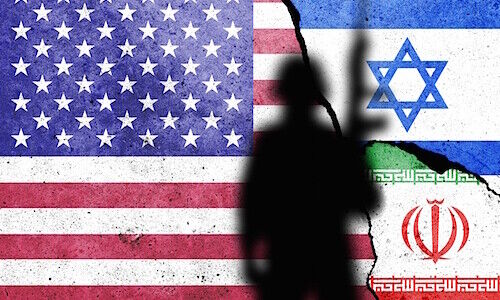Some Banks Up Caution After US Strike on Iran
The Israel-Iran conflict remains fluid after the US joined by delivering military strikes. Banks were virtually unworried after the initial Israeli attacks but are now expressing slightly more concern about the potential for further escalation.
The US has officially joined the Israel-Iran conflict after Donald Trump confirmed strikes on three major nuclear sites over the weekend. While Trump’s administration said regime change in Tehran is not the intention, the President hinted at the move on social media. Meanwhile, Iran’s parliament has also approved a plan to block the Strait of Hormuz – a key route for oil shipments.
And in the latest, Iran launched retaliatory strikes against US bases in Qatar and Iraq.
The conflict has developed rapidly in less than two weeks. After the first exchange of attacks between Israel and Iran, banks were largely unworried about the possibility of escalation but following the latest entry of the US, some have expressed a more cautious tone.
Attack on Assets
One of the key concerns being highlighted is an Iranian attack on US assets. According to a commentary by Julius Baer’s head of research, Christian Gattiker, this could be especially impactful depending on which assets are hit.
«If Tehran sticks to attacking US assets in Iraq, markets may stabilize quickly. If it targets other regional bases or the Strait of Hormuz, expect renewed risk-off across the board,» Gattiker said.
Oil Risk
Banks are also closely monitoring the Strait of Hormuz where 20 percent of global oil shipments pass through.
«Threatening maritime traffic through the Strait of Hormuz, or mining this crucial choke-point, remain a possibility. In a risk case, Iranian attacks could damage or destroy key assets in the region,» UBS said in a separate note by its chief investment office. «A 2019 attack on Saudi Arabia’s Abqaiq oil processing facility temporarily stopped nearly half of the kingdom’s oil production.»
Russian Entry?
Another major risk is the possibility of involvement of other countries, most notably Russia. While UBS’ base case is that Moscow won’t become involved – President Vladimir Putin explicitly pointed out that military aid was not covered under a strategic partnership with Iran – this scenario could have serious repercussions if it plays out.
«[Russia’s involvement] could see potentially long-lasting disruptions to oil markets as a way of strengthening its own hand in negotiations with the US over the future of Ukraine,» the bank explained.
Some Still Optimistic
Nonetheless, there are other banks that still believe that cool heads will prevail.
«US strikes should have only a limited impact on the global macroeconomic outlook. Geopolitical tensions are high but the conflict can remain contained. The economic repercussions depend largely on crude oil supplies and routes, but these would need to be disrupted to have a lasting effect,» said Lombard Odier chief economist Samy Chaar. «We maintain our investment strategy unchanged for now.»

























